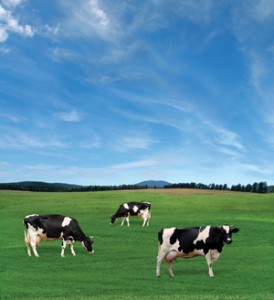USDA research imposes “a steep cost” on animal welfare

At the USDA’s Meat Animal Research Center in Nebraska, experiments are underway to create animals that produce more offspring, yield more meat and cost less to raise. However, the newspaper’s investigation found a lot of problems.
by Mary Budinger —
The U.S. government is re-engineering farm animals “to fit the needs of the 21st-century meat industry,” according to an investigation by The New York Times of a little known federal institution tasked to help producers of beef, pork and lamb turn a higher profit.
At the USDA’s Meat Animal Research Center in Nebraska, experiments are underway to create animals that produce more offspring, yield more meat and cost less to raise. However, the newspaper’s investigation found a lot of problems.
Pigs are having up to 14 offspring instead of the usual eight, but hundreds of those newborns do not survive. Cows, which normally bear one calf at a time, have been retooled to have twins and triplets, which often emerge weakened or deformed, dying in such numbers “that even meat producers have been repulsed,” the Times reports.
Congress founded this center in Nebraska 50 years ago to consolidate the USDA’s research on farm animals. The center has worked to make lamb chops bigger, pork loins less fatty and steaks easier to chew to help American ranchers compete in a global marketplace.
But an investigation by The New York Times showed that these endeavors have come at a steep cost to the center’s animals, which have been subjected to illness, pain and premature death over many years. For example, a shortage of routine care has meant that the treatable malady of mastitis, a painful infection of the udder, has killed more than 625 cows. Federal law sets standards of care for animals but exempts farm animals used in research.
The media investigation pointed out that the government’s practices in Nebraska are out of sync with growing public concern for the well-being of animals and the demand for humanely raised food.
Source: The New York Times, January 19, 2015.
Mary Budinger is a certified Nutritional Therapy consultant and an Emmy-award winning journalist who writes and teaches about nutrition and integrative medicine. 602-494-1999.
Reprinted from AzNetNews, Volume 34, Number 2, April/May 2015.





April 21, 2015
April/May 2015 Issue, Featured, Food, Nutrition and Diet, Genetically modified